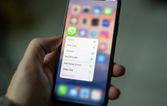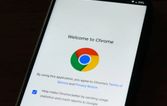
The iPhone 16 series doesn’t boast a groundbreaking redesign, with most updates happening under the hood, mainly addressing the issues raised by iPhone 15 users. So, how does Apple plan to drive strong sales for the iPhone 16 this year? The answer lies in Apple Intelligence (AI). However, the range of on-device and cloud-based generative AI features are not expected until the next major software update. A recent report suggests that Apple may have leaned on somewhat misleading marketing strategies, as the hardware of the iPhone 16 isn’t significantly superior for handling these AI capabilities.
Report Suggests iPhone 16’s Hardware Isn’t Much Better for AI, but 8GB RAM Is Crucial
A key point in the report mentions that while the chipset and other internals of the iPhone 16 aren’t dramatically better at running Apple Intelligence, the bump to 8GB RAM is essential. Previously, there were concerns over Apple sticking with 8GB of RAM for the entire iPhone 16 lineup. Many expected that the iPhone 16 Pro models would feature 12GB, but that upgrade will likely come with the iPhone 17 next year. According to Bloomberg’s Mark Gurman in his ‘Power On’ newsletter, the minimum RAM requirement for running Apple’s AI features is 8GB, which is consistent across all iPhone 16 models.
However, Gurman downplays other hardware aspects, hinting that the A17 Pro chipset used in the previous generation might have been adequate to handle Apple Intelligence. If hardware improvements were as significant as Apple suggests, Gurman believes the company would have emphasized them in its marketing efforts, rather than leaning so heavily on AI-driven features that are still in development.
Apple’s Marketing Focus on AI Despite Hardware Drawbacks
“It’s no coincidence that Apple is positioning Apple Intelligence as the primary reason to upgrade to the iPhone 16, even though the AI platform is incomplete and will ultimately be compatible with last year’s Pro models,” Gurman explains.
Apple’s claim that the iPhone 16 is the first model “built from the ground up for Apple Intelligence” is where things get tricky. The reality is that, aside from the 8GB RAM bump, the processor and other components in the iPhone 16 don’t make a significant leap forward in AI performance. If the hardware upgrades were substantial enough, Apple likely would have centered its marketing pitch around them. Instead, Apple’s promotional efforts are heavily focused on Apple Intelligence, overlooking the fact that many users won’t even have access to the software for weeks — with some key AI features delayed until next year — and the platform is still far from rivaling competing AI systems.
Delayed AI Rollout Could Explain Lower iPhone 16 Pre-Orders
Considering that the iPhone 15 Pro and iPhone 15 Pro Max are also fully capable of running Apple Intelligence, many consumers might hold off upgrading to the iPhone 16 models. This hesitation could explain why early reports suggest a 12.7% drop in pre-orders for the iPhone 16 Pro and iPhone 16 Pro Max compared to last year’s models. However, these figures might turn around once Apple rolls out its full AI features, making the iPhone 16 a more compelling upgrade.
We’ll continue to monitor Apple’s iPhone shipments this quarter and provide updates as the rollout progresses.








By Andrej Kovacevic
Updated on 9th March 2025